
Pakistan and Saudi Arabia signed two loan agreements amounting to $172 million for import of urea ($100 million) and initiating development projects ($72 million) in militancy-hit regions.
The agreements were signed by Economic Affairs Division Secretary Abdul Wajid Rana and Saudi Fund for Development Vice-Chairman Engineer Yousef Ibrahim Al-Bassam.
Urea loan is for a short period at an interest rate of London Interbank Offered Rate (Libor) plus 1.25 per cent. Under the programme, the Trading Corporation of Pakistan (TCP) will import urea from Saudi Arabia and provide the commodity to National Fertiliser Marketing Limited (NFML) for distribution.
NFML is one of the two players which have been accused of minting billions of rupees in urea supply according to an official inquiry report. There are fears that without plugging the loopholes, imports and distribution of the commodity through the same channels may cause further loss to the country.
To meet Rabi sowing requirements, the government has decided to import 1.2 million tons of urea, of which around 400,000 tons have already reached the country.
Speaking at the agreement signing ceremony, EAD Secretary Abdul Wajid Rana said the $100 million export credit would help Pakistan to ensure timely supply of urea. He said with signing of the two agreements Saudi Arabia has become the only country that has disbursed the entire amount of $700 million committed at the Friends of Democratic Pakistan (FODP) forum two years ago.
The FODP – a club of bilateral and multilateral lending agencies and countries – had pledged to give Pakistan $5.4 billion in two years in order to help strengthen democracy and offset losses suffered in the fight against terror. However, less than one-fourth of the pledges could be disbursed apparently due to apprehensions over transparent use of the money. The FODP has lately been converted into a dialogue forum called Pakistan Development Forum (PDF).
Last year, Saudi Arabia pledged an additional $400 million at the PDF. The EAD secretary said the $100 million credit for urea import was part of that commitment while for remaining $300 million Pakistan has selected some projects, which have been sent to Saudi Arabia for assessment.
Saudi Fund for Development Vice-Chairman Engineer Yousef Ibrahim Al-Bassam said the urea credit facility would benefit the agricultural sector of Pakistan, boost food production and maximise farmer income because increase in yield comes through use of fertiliser rather than using additional land.
The second loan of $72 million will be utilised for reconstruction in the Malakand Division, Bajaur Agency and North and South Waziristan, the regions worst affected by the war against terror.
Al-Bassam said the reconstruction activity, including repair of roads, would contribute to increasing agricultural productivity and enhance educational and health standards for the people of the region. The rehabilitation work includes construction of 283 kms of major roads and 887 kms of other roads along with 43 bridges and 78 culverts.
The loan will also be used for construction of main and branch canals with flood protection work, water storage, supply of lift pumps, construction of educational facilities in South Waziristan, North Waziristan and Bajaur and rehabilitation of power network and transmission lines.
Published in The Express Tribune, December 30th, 2011.
COMMENTS (5)
Comments are moderated and generally will be posted if they are on-topic and not abusive.
For more information, please see our Comments FAQ






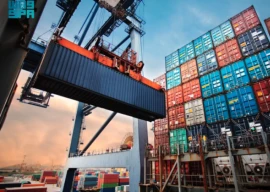
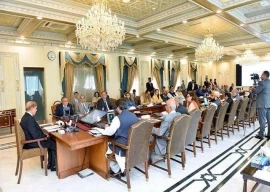

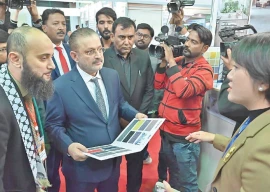
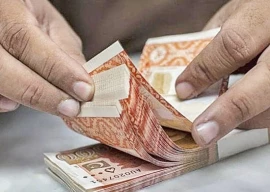

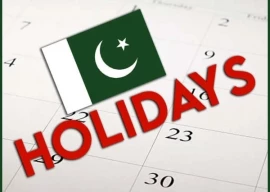
1734946202-0/Express-Tribune-(6)1734946202-0-270x192.webp)
1732012115-0/Untitled-design-(14)1732012115-0-270x192.webp)
1734899716-0/image-(15)1734899716-0-270x192.webp)







@Sajida: Because when it comes to money, there is nothing secular about this Govt or for that matter any Govt in past of the Nation ! These guys will sell their own family for money . Their Ghairat is only money not the nation.
Saudis use aid to spread their Wahhabi faith. Governments then allow madressas to spread Wahhabi teaching. This is a poisonous gift and why is "secular" government accepting it?.
Well at least someone has decided to lend money to this country, as chances of getting it back on time is pretty slim !
Who was responsible for funding these militants in the first place?
@ A. Khan,
Islamic laws and sharia are only for the poor. The wealthy (Saudi Arabia) can impose interest on the poor (Pakistan). If we can't pay interest, we may have to "go easy" on the militants.
I thought charging and paying interest was haram for Muslims, so why is Saudi Arabia charging and we paying this ?